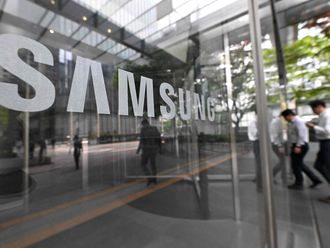New York: Stocks in developed nations took 17 months longer than emerging markets to erase losses spurred by the Lehman Brothers Holdings 2008 bankruptcy, recovering after the Federal Reserve took steps to stimulate growth.
The MSCI World Index of 1,660 companies in 24 developed countries such as the US, UK and Japan rose as high as 1,283.68 yesterday.
The gauge surpassed its closing level of 1,283.14 on September 12, 2008, the last session before Lehman's collapse caused a 46 per cent drop through March 2009.
Developed nations are lagging behind the 21-country MSCI Emerging Markets Index, which finished its recovery in August 2009 and rallied another 31 per cent after stocks from Brazil to Turkey advanced amid faster growth.
As confidence in the US and European economies waned, Fed Chairman Ben S. Bernanke suggested four months ago that he might purchase bonds, triggering a global equity rally.
The "new economic leadership is reflected by emerging market stocks, which recovered to pre-Lehman levels much faster than have developed stock markets," said James Paulsen, chief investment strategist at Minneapolis-based Wells Capital Management, which oversees about $340 billion (Dh1248 billion).
"Economic activity in these regions did not slow or contract as deeply and have recovered much faster."
Triple the rate
Emerging economies may expand 6.4 per cent in 2011, almost three times the 2.2 per cent rate for developed nations, according to the International Monetary Fund. Government debt will probably amount to 37 per cent of emerging-market gross domestic product next year and budget deficits will be 2.9 per cent, compared with levels of 101 per cent and 6.7 per cent in advanced nations, the Washington-based fund predicts.
The MSCI World Index surged 86 per cent through yesterday since sinking to a 12-year low of 688.64 in March 2009.
Stocks have rallied around the world as central banks kept interest rates near record lows while governments spent trillions of dollars to spur growth, boosting confidence in the global economy and helping equity markets overcome the worst financial crisis since the 1930s.
"We were priced for the end of the world until mid-March 2009," said Komal Sri-Kumar, who helps manage $111 billion as chief global strategist at TCW Group in Los Angeles.
"So when Armageddon didn't happen, we had a significant jump from the lows.
"Add to this massive fiscal and monetary stimulus, the continued healthy growth in emerging markets and Bernanke's quantitative easing speech at the end of August."
The MSCI World Index fell 0.1 per cent to 1,277.75 as of 10.39am in New York. The MSCI Emerging Markets rose 0.9 per cent to 1,146.51, its third straight gain, as Chinese manufacturing expanded.
Quantitative easing
The Standard and Poor's 500 Index surged 20 per cent through yesterday since Bernanke's August 27 speech in Jackson Hole, Wyoming, where he foreshadowed the second round of quantitative easing.
The central bank said in November it will buy an additional $600 billion of bonds through June.











